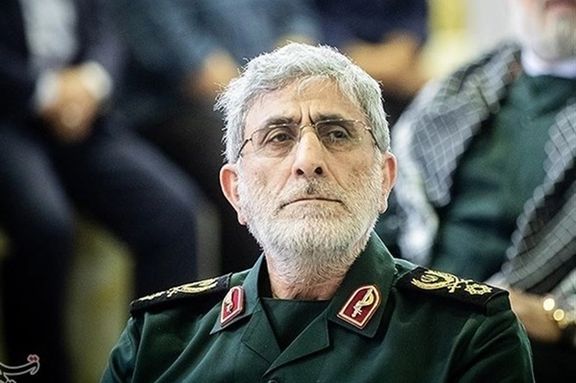Reports emerged on Saturday that Qaani might have been in Beirut following the death of Hezbollah leader Hassan Nasrallah and continued Israeli air strikes on position of the Iran-backed group. No one has heard about Qaani since October four and there are speculations that he might have been killed or injured in Israeli air strikes.
A targeted airstrike, which aimed to eliminate Hashem Safieddine, a senior Hezbollah leader and potential successor to Hassan Nasrallah, has raised speculation about Qaani’s possible presence at the bombed location. The New York Times, citing three unnamed Iranian officials, reported that Qaani had traveled to Lebanon last week to meet with Hezbollah officials in an effort to strengthen the group.
Reuters also reported on Sunday that according to Iranian officials Qaani has not been heard from since Friday. Senior Hezbollah official Mahmoud Qmati told Reuters: "I have no information, we are also searching for the truth of this matter."
While Israel’s Channel 12 suggested that Qaani might have been injured in the attack, there has been no confirmation from Iranian authorities. A Lebanese security source told Reuters that communication with Safieddine has been cut off since the strike, further fueling concerns about high-level casualties among Hezbollah leadership.
Qaani’s absence from key government ceremonies in Iran, including an event where Supreme Leader Ali Khamenei awarded a military badge to IRGC Aerospace Forces commander Amirali Hajizadeh, has only added to the growing uncertainty. Iran has not released any recent photos or videos of Qaani.
Meanwhile, in a sign of heightened tensions and amid fear of possible Israeli retaliation for last week attack, Iran's Civil Aviation Organization has canceled all flights from Sunday evening to Monday morning, citing "operational limitations." This follows a pattern seen in April when Iranian flights were suspended for nearly 48 hours after Iran launched missile attacks on Israeli positions.
At the same time, Israeli Defense Minister Yoav Gallant responded to recent Iranian actions with a stern warning. "Whoever thinks that a mere attempt to harm us will deter us from taking action should take a look at Gaza and Beirut," Gallant stated, referring to the October 1 Iranian missile strike on two Israeli air force bases. Gallant emphasized that no Israeli aircraft or squadrons were damaged in the strike.
As tensions escalate, both sides are preparing for potential further confrontations, with Iran threatening reciprocal action if Israel launches any new attacks. Iran closed its airspace Sunday night until Monday morning.








